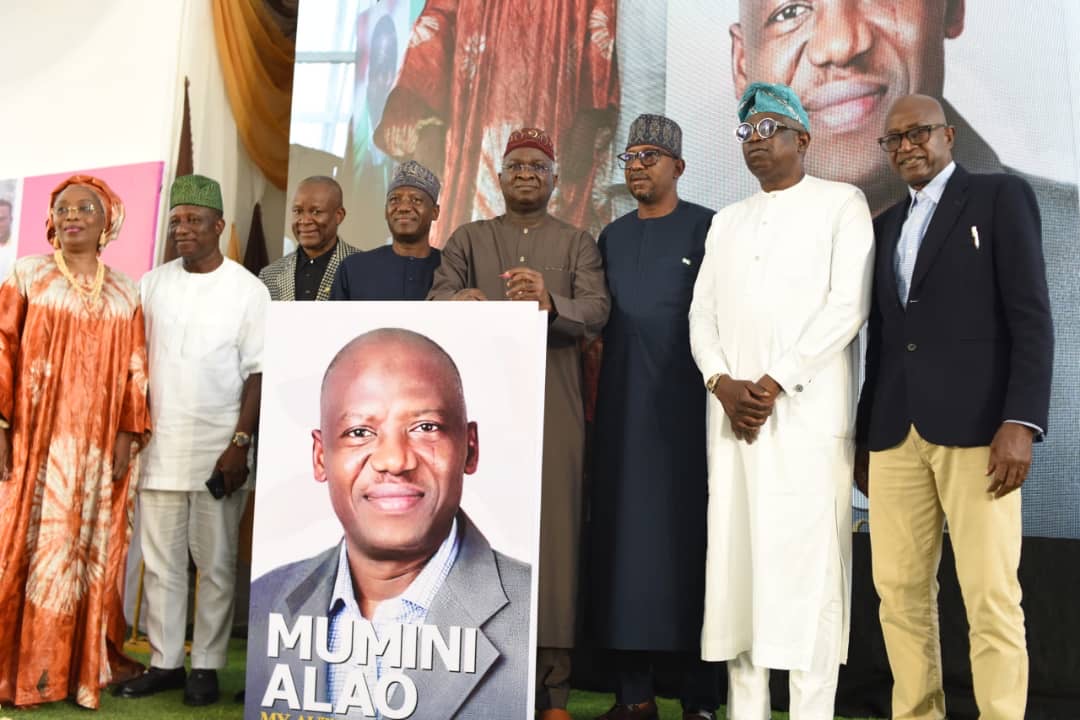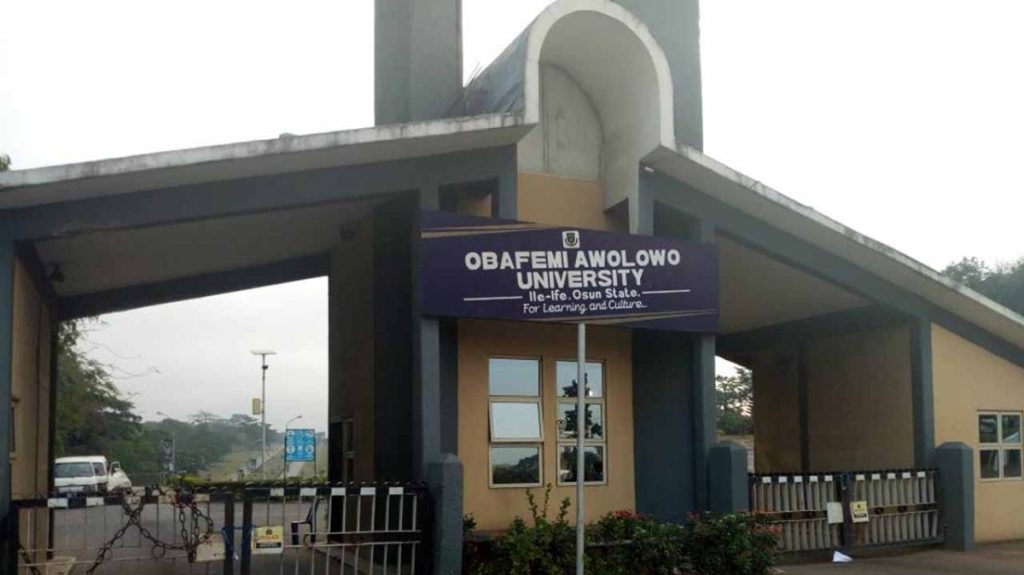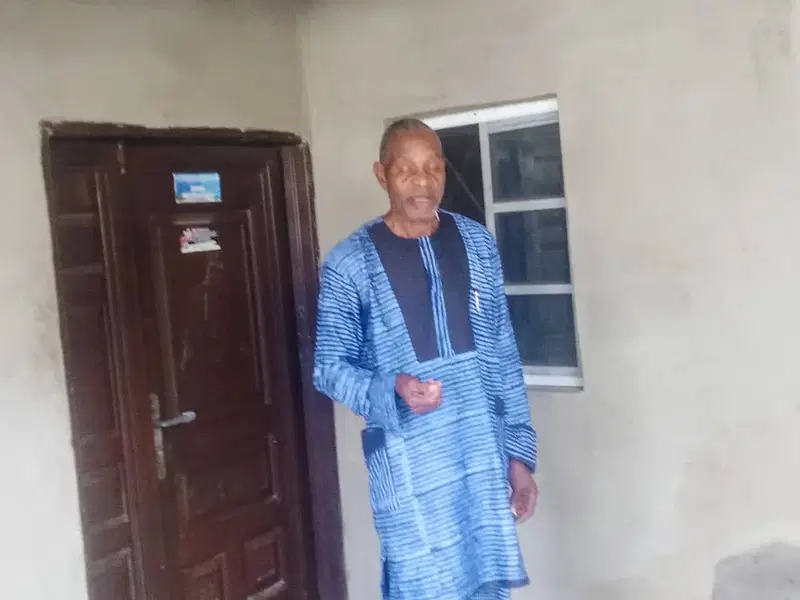Former Lagos State Governor, Babatunde Raji Fashola has called for establishment of modern sports arenas – with multi-purpose functions.
He made the call while delivering a lecture at the unveiling of the Nigerian sports journalist and commentator, Dr Mumini Alao’s autobiography, last Sunday.
Delivering the lecture with the title: “Re-thinking the current Football Business Model in Nigeria as a Catalyst For Sports Development”, the former Minister of Power, Works and Housing indicated that the sports arenas he advocated for will attract people, increased media coverage, safe parking, reliable transport services into and out of the venue, and the safety of the patrons and their families.
“Simple raffle draws at half-time, using the ticket numbers to give token prizes like jerseys, useful devices like smartphones and souvenirs, but certainly no cash are options that can be considered as creative incentives, ” Fashola noted.
READ ALSO:
Kogi Photojournalist’s Father Dies Weeks After Son’s Murder
Nigeria Rolls Over Unspent 2024 Capital Funds Into 2025 Budget
‘Insensitive;’ CAC Fires Back At Pastor Fatoyinbo Over Comment On Ayo Babalola
Unlike Ibom Air, ValueJet Did Not Press Charges Against Fuji Singer — NCAA
Abdullahi Garba Ramat: Meet Man Who’ll Lead Your Next Electricity Tariff Review
He confirmed that governance, regulation, planning and calendarization are investment assurances and incentives for sponsorships, pointing out that most clubs around the world have supporters within the local communities and outside who own part of the clubs.
The former Governor established: “The time has come for those state-government-owned clubs to divest themselves of most or all of their shares and sell them to public under advice from those who have expertise in privatization not for self-serving purposes but to real business and sports minded concerns and supporters who will have a corporate governance and be subject to audits and company laws.
“In the effort to build ownership and by extension followership, support and ultimately brand identity, existing state-owned clubs must project a brand that people want to identify with and this varies across board from state to state.
“This identity will be discernible not from any superficial reasoning but from scientific investigation, both as a poll/survey of what the people want or identify with.
“This will include – but will not be limited to – the name, colours, prevalent occupation in the area, that excludes ethnicity and religion. Township identities, occupational dominance and cultural practices are good branding considerations as the states seek to divest or new proprietors seek to inaugurate”.
Fashola recommended financial instruments, such as insurance policies and bonds, and bank guarantees to ensure that players’ and staff salaries are guaranteed before each season starts, and they can be enforceable in the event of default, noting that this will require the Central Bank and other financial institutions to put on their thinking caps.
The former Minister also suggested that bankruptcy and liquidation proceedings already in our laws must be firmly applied to “remove the cancer of failing clubs before they spread and contaminate others”.
Fashola stated in his lecture: “A minimum wage must be set for footballers applicable nationwide, while higher wages are weighted based on skill and performance”.
“As has been the case with many challenges we have confronted, the solutions are within reach if we are prepared to do the hard work, enforce the rules and delay gratification. We must not look for quick fixes. I subscribe to the idea of a 10 Year Plan and a decade of commitment to sports development.
“We must appoint sports administrators with proven knowledge and personal discipline who understand that our objective is not to win at all costs, but to win in the end by building something that lasts.
“The resources we require, in terms of manpower, abound amongst our large number of persons below the age of 30 who have talent and energy. Teachers and coaches must be co-ordinated for talent scouting and development.
“Architects, builders and allied professionals must be co-ordinated to integrate existing transport infrastructure with sporting facilities and arenas; and develop new ones.
“Health workers of all cadres must seek the importance of sports to the human developmental index and collaborate to develop nutrition, care, support and deliver the best.
“Lawyers and arbitrators are required to be trained, to update and modernise the laws and regulations, and to ensure unflinching implementation.
“The media, communication and advertising professionals must re-position their approach for optimising the possibilities (training of personnel, investment in equipment, incentives for sponsorships).
“The government at federal level must focus on licensing dedicated sports outlets in print and electronic platforms to support the popularisation and publication of sports” he reiterated.
Fashola restated that the stadia and arenas he called for must be made family-friendly by embracing local and community policy complemented by the law enforcement personnel.
He stressed that the country must develop a new generation of officials, umpires, referees who administer the rules of various sports with utmost integrity and we must have no tolerance for hooliganism or violence under any guise.
Fashola advised that the country must ensure – amongst many other things – that there is absolutely no space for drug use, abuse or cheating in our sports, or in any sports facility in Nigeria.
He restated: “With the global epidemic of drug abuse the prime objective of our sports programme must be to find the best talent, and keep it untainted as it is nurtured to the peak of its most natural ability”.
The book launch was attended by prominent sports personalities, including: former Minister of Sports Development, John Owan Eno; Chairman of the National Sports Commission, Shehu Dikko, ex-Super and National Eagles stars, such as “Mathematical” Segun Odegbami; Etim Essien, among others.
Also in attendance were: foremost Sports female broadcast journalists Modele Sarafa Yusuf; Aisha Falode, Media entrepreneurs and executives, author’s associates, friends and families.





